Determining the most intelligent animal species is a complex and intriguing topic that requires careful analysis. Animal intelligence can be defined in various ways and encompasses different cognitive abilities. Understanding the factors influencing animal intelligence and debunking common myths surrounding it is crucial in appreciating the remarkable capacities of different species.
Defining what intelligence means in the context of non-human creatures is essential to begin exploring animal intelligence. Different types of intelligence exist, including social intelligence, problem-solving abilities, communication skills, and tool usage. These diverse forms of intelligence contribute to an animal’s overall cognitive capabilities.
Comparative analysis plays a significant role in studying animal intelligence. Researchers consider various criteria when measuring and comparing intelligence among different species. Factors such as problem-solving skills, memory, adaptation to new environments, and social complexity are often used to assess the intelligence levels of animals.
While many animal species exhibit remarkable intelligence, some stand out for their cognitive abilities. Examples include primates like chimpanzees and bonobos, dolphins, elephants, crows, octopuses, and dogs. These species demonstrate complex problem-solving skills, social interactions, communication methods, and the ability to use tools, making them subjects of extensive research on animal intelligence.
However, determining which animal is most intelligent is not straightforward. Comparative studies across different species provide valuable insights into their intelligence levels. Still, it is crucial to consider that intelligence can vary within a species, and certain abilities may be more developed in specific individuals or groups.
Several factors influence animal intelligence. While brain size is often associated with intelligence, it is not the sole determinant. Genetic factors, environmental conditions, social dynamics, and learning opportunities contribute significantly to an animal’s intelligence. Understanding these influences helps us comprehend the breadth and diversity of intelligence across the animal kingdom.
It is essential to debunk common myths surrounding animal intelligence, such as assuming that intelligence is solely possessed by humans or limited to a few select species. By acknowledging and appreciating the diverse forms of intelligence in the animal world, we can gain a deeper understanding of the cognitive capacities of different species and foster a greater respect for their inherent worth.
Research on animal intelligence holds significant importance, not just for understanding these fascinating creatures but also for conservation efforts and ethical considerations. Recognizing and acknowledging the intelligence of animals can have implications for their protection, conservation, and the ethical treatment of animals in various contexts.
Exploring the depths of animal intelligence opens a doorway to unraveling the remarkable abilities and complexities of the creatures that share our planet, ultimately deepening our connection and appreciation for the diverse forms of life surrounding us.
Key takeaways:
- Animal intelligence is diverse: There are different types of intelligence in animals, and it is important to consider various criteria when measuring their intelligence.
- No single animal is deemed the most intelligent: Different species possess unique intelligence and excel in different areas, making it challenging to determine a single “most intelligent” animal.
- Intelligence is influenced by genetics and environment: The correlation between brain size and intelligence is not definitive, as genetic and environmental factors play significant roles in animal intelligence.
Defining Intelligence in Animals
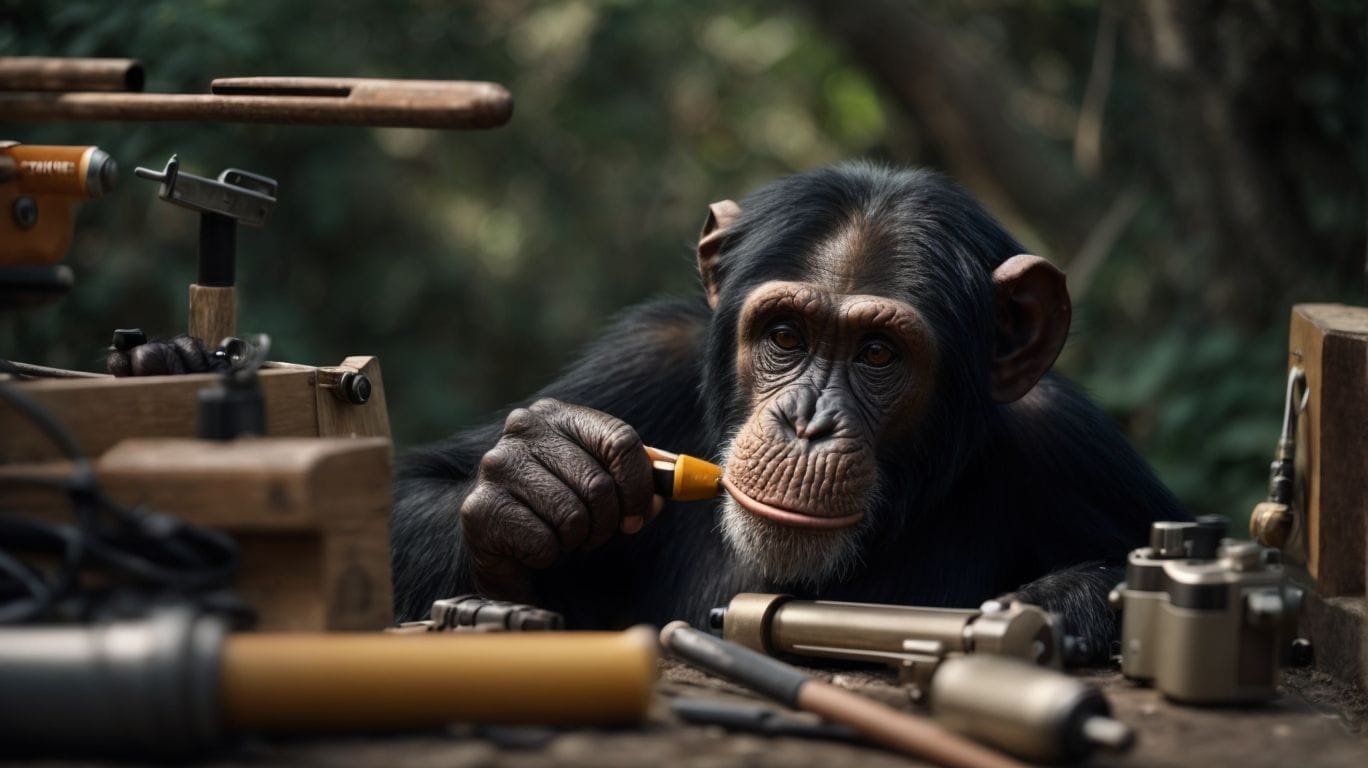
Photo Credits: Petnarnia.Com by Thomas Young
Intelligence in animals can be defined in various ways. Defining Intelligence in Animals is not solely determined by the ability to solve puzzles or mimic human behavior. Factors such as problem-solving skills, social interactions, communication abilities, and adaptability all contribute to measuring animal intelligence. For example, dolphins exhibit complex communication skills and can use tools, while elephants demonstrate self-awareness and emotional intelligence. Recent studies have shown that certain bird species, like crows and parrots, possess remarkable problem-solving abilities and can even use tools to obtain food. These examples highlight the diverse ways intelligence exists in the animal kingdom.
In 2007, a captive female gorilla named Koko made headlines when she revealed her ability to communicate using sign language. Koko learned over 1,000 signs and could understand over 2,000 spoken words in English. Through her interactions with humans, she illustrated her comprehension and her capacity for emotion and empathy. Koko’s story serves as a powerful example of how animals possess intelligence that extends beyond traditional measures, challenging our understanding of what it means to be intelligent.
What are the Different Types of Intelligence?
Animals exhibit different types of intelligence, each reflecting their unique capabilities and adaptations. Here is a table summarizing these different types of intelligence:
| Type of Intelligence | Description | Examples |
|---|---|---|
| Spatial Intelligence | Ability to navigate and understand physical space | Birds that migrate long distances |
| Social Intelligence | Ability to navigate and understand social interactions | Primates that live in complex social groups |
| Problem-Solving Intelligence | Ability to solve complex problems | Dolphins using tools to catch prey |
| Communication Intelligence | Ability to communicate and understand signals | Bees performing intricate “waggle dances” for navigation |
| Memory Intelligence | Ability to remember and recall information | Elephants with long-lasting memory |
Pro-tip: Recognizing and appreciating the different types of intelligence in animals can lead to a deeper understanding and respect for the diverse cognitive abilities present in the animal kingdom.
Animal Intelligence: A Comparative Analysis
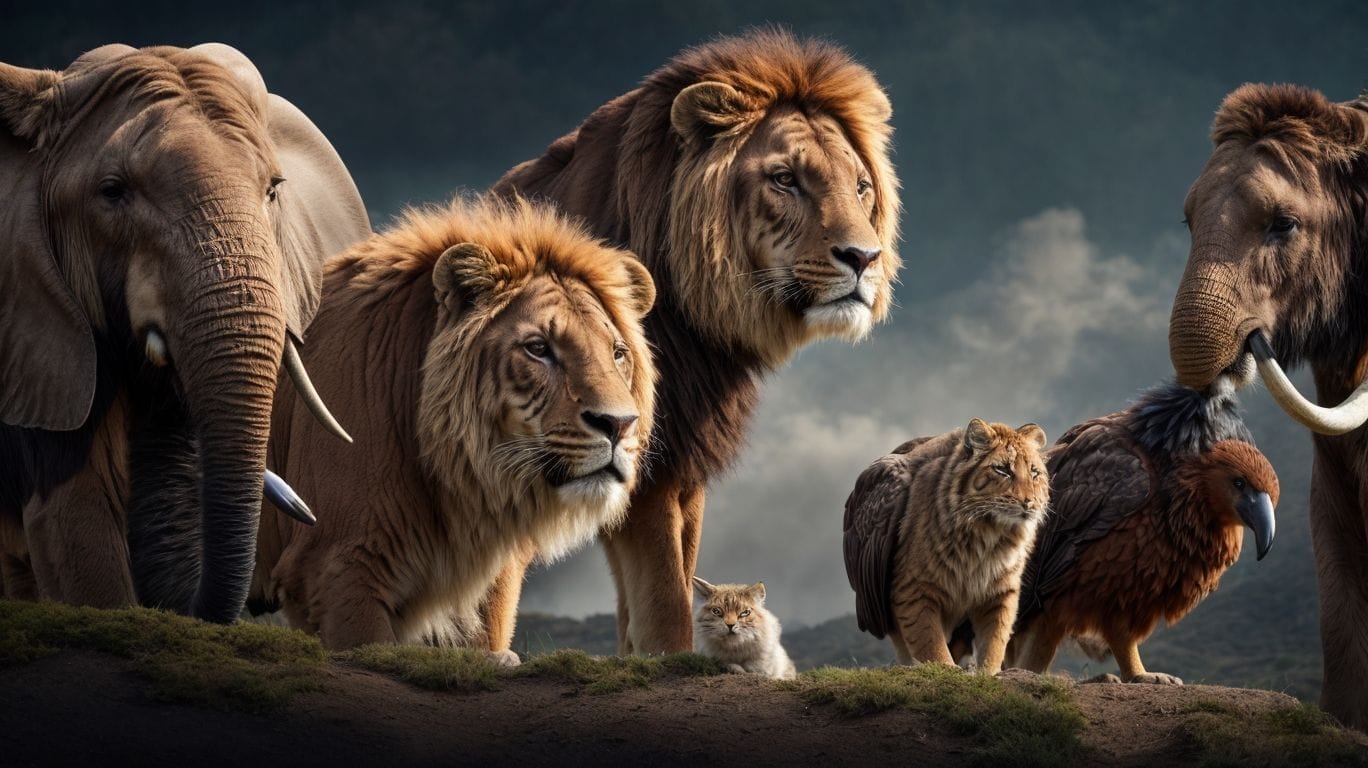
Photo Credits: Petnarnia.Com by Dennis Sanchez
Animal intelligence can vary greatly across different species. A comparative analysis of animal intelligence allows us to assess their cognitive abilities. Studying and comparing the crow’s problem-solving skills, the octopus’s tool use, and the dolphins’ language comprehension is fascinating. Through this comparative analysis, researchers gain insights into the complexity of animal intelligence. It helps us appreciate the diverse ways in which animals adapt and interact with their environment. Understanding animal intelligence contributes to our understanding of evolution and the intricacies of the animal kingdom.
What are the Criteria for Measuring Animal Intelligence?
When measuring animal intelligence, what are the criteria to consider? There are several key factors to assess. Firstly, problem-solving abilities are crucial. Evaluating how well an animal can solve puzzles or overcome challenges is important. Secondly, tool usage plays a significant role. Researchers need to determine if the animal can use objects as tools to achieve a goal.
Additionally, evaluating learning ability is essential. One must understand how quickly and effectively an animal can learn new things.
Moreover, social intelligence should not be overlooked. Researchers must consider the animal’s ability to navigate complex social relationships and recognize individual members of its species and even humans. Lastly, cognitive tests are useful in measuring an animal’s cognitive abilities, including memory, reasoning, and perception. By comprehending these criteria, insights into the intelligence of different species can be gained, leading to scientific advancements.
Examples of Intelligent Animal Species
- Chimpanzees: Renowned for their exceptional problem-solving abilities, utilization of tools, and intricate social relationships.
- Dolphins: Exhibit advanced communication skills, spatial reasoning, and rapid learning capabilities.
- Elephants Display impressive emotional intelligence, form strong social bonds, and possess remarkable memory capabilities.
- Orcas: Exceptionally intelligent, with complex forms of communication, excellent problem-solving skills, and the ability to recognize individual humans.
- Ravens: Demonstrating problem-solving prowess, adeptness in tool usage, and the ability to outsmart other animals.
- Bonobos: Showcasing social intelligence, including empathy, cooperation, and the utilization of rudimentary language skills.
Case Study: Which Animal is Considered the Most Intelligent?
In considering which animal is the most intelligent, a thorough case study must be conducted, considering various factors and evidence.
| Species | Intelligence Indicators | Skills/Abilities | Social Behavior |
| Dolphin | Complex problem-solving abilities | Tool usage, recognition of self and others | Highly social, with complex communication |
| Chimpanzee | Planning skills, tool usage | Ability to learn new things to outwit predators | Complex social relationships, hierarchical structure |
| Elephant | Emotional intelligence, spatial reasoning | Use of tools, solving puzzles, recognition of specific people | Live in social groups, strong familial bonds |
| Orcas (Killer Whales) | Intelligence in solving complex tasks | Recognition of human individuals, communication using specialized languages | Highly social, live in matriarchal societies |
Comparison of Intelligence Among Different Species
A comparison of intelligence among different species can be conducted by assessing various indicators, such as problem-solving abilities, tool usage, planning skills, spatial reasoning, and emotional intelligence. Some animal species, including pigeons, African grey parrots, and dolphins, display high levels of intelligence, enabling them to acquire new knowledge and outsmart potential threats. Dolphins possess the remarkable ability to distinguish individual humans, while parrots exhibit rudimentary language skills. It is crucial to note that genetics alone do not determine intelligence, as environmental factors also play a significant role. By comparing the intelligence of diverse species, we gain insights into the vast range of cognitive abilities shared by millions of animals.
Fun Fact: Are you aware pigeons can recall number positions and perform intricate tasks like unscrewing container lids?
Factors Influencing Animal Intelligence
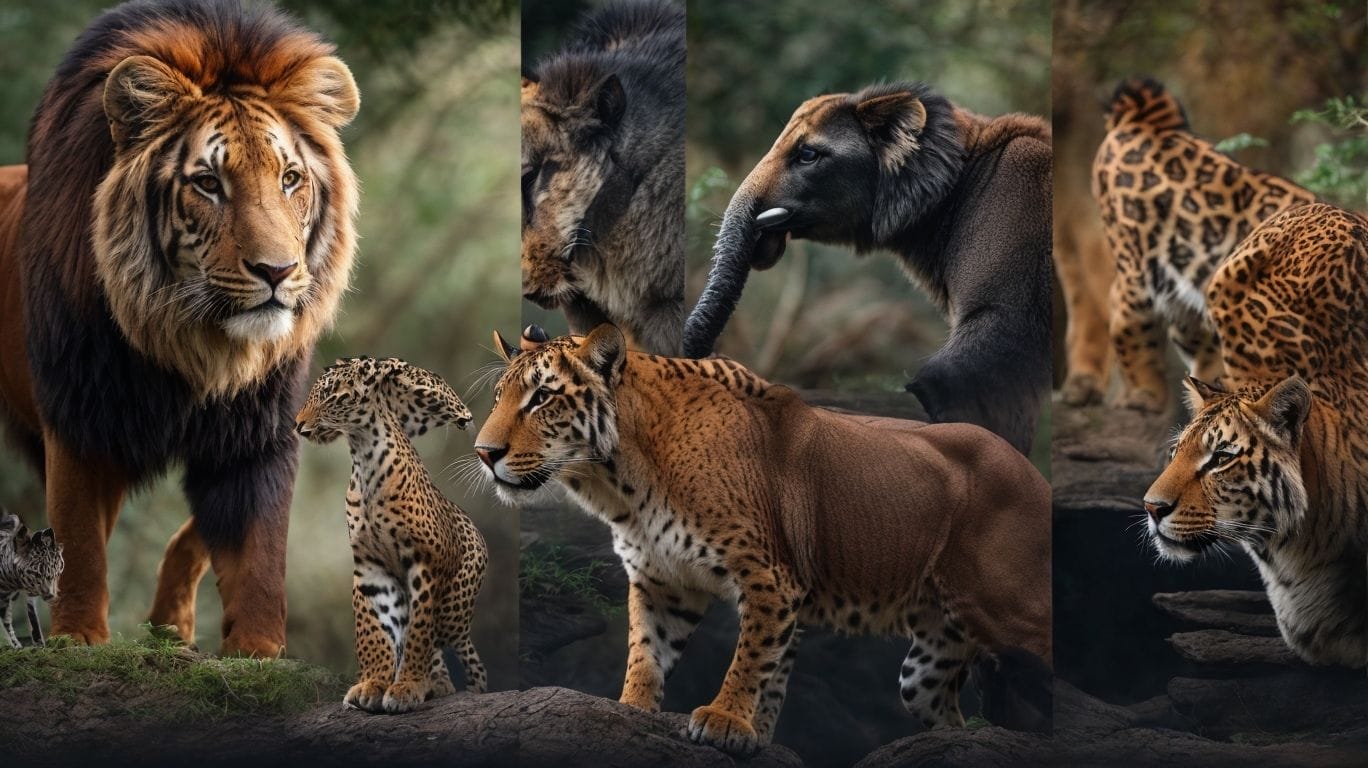
Photo Credits: Petnarnia.Com by Gregory Young
- Various factors influence animals’ intelligence, including genetics, environment, social interactions, and brain structure.
- Genetics: Certain species, like dolphins and primates, have evolved with higher cognitive abilities.
- Environment: Animals raised in enriched environments with mental stimulation tend to display higher intelligence.
- Social Interactions: Living in social groups allows for the developing of complex communication and problem-solving skills.
- Brain Structure: Animals with larger brain sizes or specialized brain regions for complex behaviors often exhibit higher intelligence.
These factors interact to shape an animal’s intelligence level. Understanding these influences can help researchers and animal caretakers improve animal welfare and conservation efforts.
Are Intelligence and Brain Size Correlated in Animals?
Are Intelligence and Brain Size Correlated in Animals?
Intelligence and brain size are not always correlated in animals. While larger brains do tend to indicate higher intelligence in some cases, there are exceptions to this rule. Some species, like dolphins and elephants, have large brains relative to their body size and exhibit high levels of intelligence. Other animals with smaller brains, such as crows and octopuses, display remarkable problem-solving abilities and cognitive skills. This suggests that factors other than brain size, such as brain structure and complexity, play a significant role in determining animal intelligence. Therefore, it is important to consider multiple factors when studying animal intelligence.
Pro-tip: Remember, when evaluating animal intelligence, it’s essential to consider various factors beyond just brain size for a comprehensive understanding.
Genetics and Environmental Factors in Animal Intelligence
Genetics and environmental factors are both significant contributors to animal intelligence. The ongoing debate revolves around whether genetic traits or environmental influences have a more pronounced effect. Extensive research supports that both factors play important roles in shaping animal intelligence. Genetic factors establish the inherent intellectual potential of a species, while the environment, encompassing social interactions, diet, and exposure to external stimuli, has the power to mold and augment cognitive abilities. Remarkably, research studies have revealed that when raised in enriched environments with stimulating activities, laboratory animals display enhanced levels of intelligence compared to those raised in barren conditions. These findings underline the vital interplay between genetics and the environment in determining animal intelligence.
One species that exemplifies high intelligence is dolphins. Found in Shark Bay, Western Australia, a specific group of dolphins has developed a remarkable behavior known as “sponging.” This behavior involves using sponges to protect their sensitive noses while foraging on the ocean floor. Notably, this behavior has been passed down through multiple generations, serving as a testament to the influence of environmental factors on the development of animal intelligence.
Debunking Common Myths about Animal Intelligence
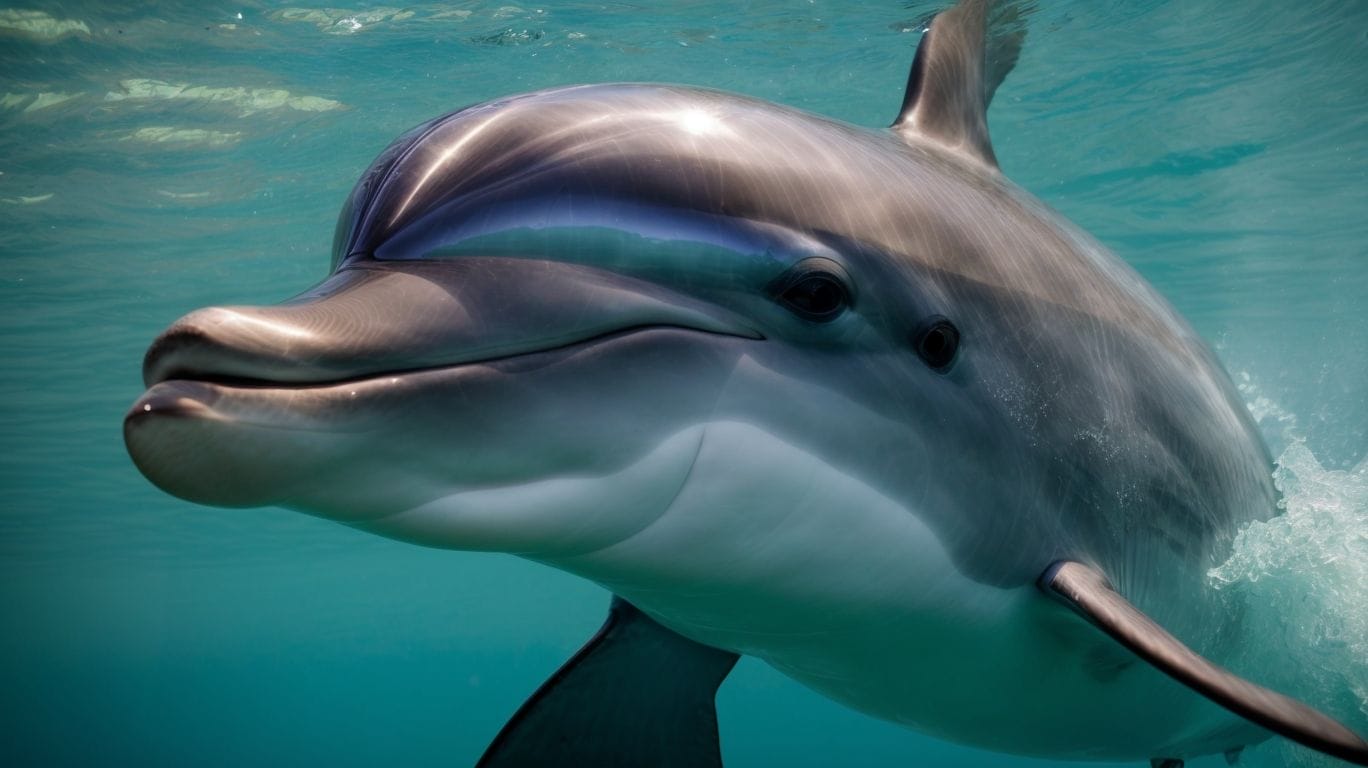
Photo Credits: Petnarnia.Com by Stephen Lee
Debunking Common Myths about Animal Intelligence
- Size does not determine intelligence: It is a misconception to believe that a smaller animal, like a crow, cannot solve complex puzzles. In reality, crows possess problem-solving skills that larger animals may lack.
- Domestication does not equate to intelligence: While dogs are often easier to train, it does not indicate that they are intellectually superior to other animals.
- Language is not the only indicator: Just because an animal does not communicate in human language does not mean it lacks intelligence. Animals have their unique ways of communicating.
- Tool use is not exclusive to primates: Not only primates but also dolphins, octopuses, and crows demonstrate intelligence by using tools to solve problems.
The Importance of Animal Intelligence Research
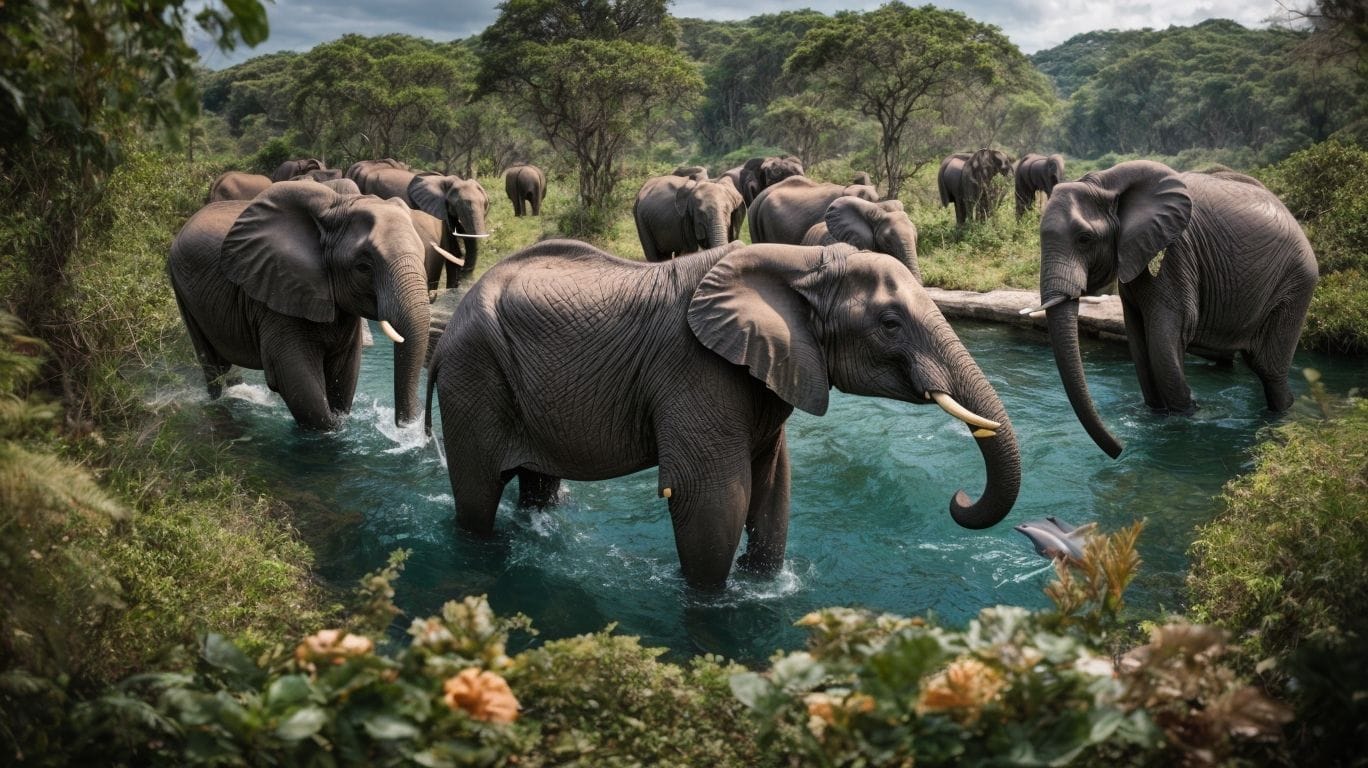
Photo Credits: Petnarnia.Com by Robert Walker
While studying animal intelligence, it’s crucial to acknowledge the significance of research in this field. In this section, we’ll uncover the impact and implications of animal intelligence research. From its relevance to conservation efforts to ethical considerations, we’ll explore the diverse facets that emerge from studying the cognitive abilities of our fellow creatures. Prepare to delve into a world where animals’ intelligence shines, and the knowledge we gain can shape our perspectives and decisions.
Implications for Conservation and Ethical Considerations
Conservation and ethical considerations are crucial aspects when researching animal intelligence. They play a vital role in understanding the intelligence of various animal species, enabling us to inform conservation efforts and enhance the well-being of animals living in captivity. Importantly, it raises ethical questions that prompt us to reevaluate our treatment and interactions with intelligent animals, necessitating the adoption of responsible and humane practices. Remarkably, the research on animal intelligence emphasizes the significance of preserving habitats that support intelligent behaviors, including tool usage and complex social relationships. By considering these implications, we can cultivate a greater respect and appreciation for the cognitive abilities of countless other animal species.
Scientific research has shed light on the cognitive abilities of intelligent animals, such as dolphins and elephants, leading to increased focus on their conservation. Consequently, measures have been implemented to safeguard their natural habitats and promote ethical practices in captivity. This includes the establishment of sanctuaries, which provide a more suitable environment tailored to meet the specific needs of these animals. These commendable efforts contribute to the well-being of intelligent animals, enhance our understanding of their intelligence, and advance conservation strategies for a wide range of species.
Facts:
Some Facts About Which Animal is the Most Intelligent:
- ✅ Dolphins are highly intelligent and exhibit learning and mimicry abilities. (Source: sentientmedia.org)
- ✅ Ravens are exceptionally intelligent birds with better planning skills than toddlers. (Source: sentientmedia.org)
- ✅ Pigs demonstrate surprising intelligence and can play simple video games, showcasing their understanding of cause and effect. (Source: sentientmedia.org)
- ✅ Chimpanzees, sharing 99% of their DNA with humans, are one of the most intelligent species on Earth and possess self-recognition abilities. (Source: sentientmedia.org)
- ✅ Elephants are highly intelligent and have exceptional memory, recalling specific migration routes and differentiating between different groups of predators. (Source: sentientmedia.org)


